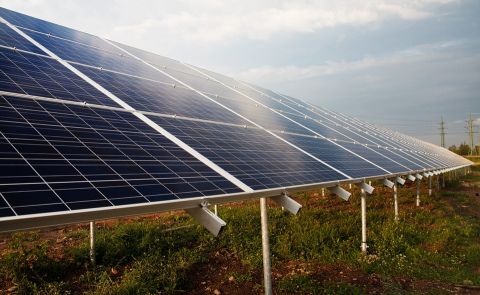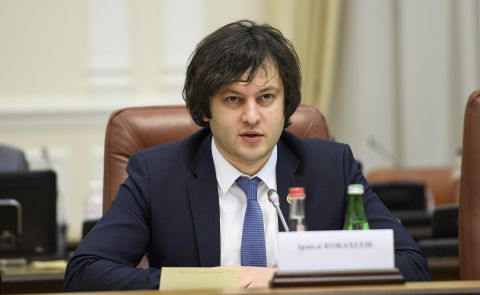
Council of Europe reports on Abkhazia and Tskhinvali

On 26 November, Georgia’s Foreign Ministry welcomed the Council of Europe (CoE) report on the situation in Abkhazia and Tskhinvali (South Ossetia).
The report outlined that despite the exceptional situation due to Covid-19, the co-chairs of the Geneva International Discussions (GID) have remained fully engaged and retained close contact with all participants while continuing to address pertinent security and humanitarian related issues of the GID agenda. It was hihglighted that as part of the measures taken in Abkhazia and Tskhinvali to limit the spread of the Covid-19, all “crossing points” along the Administrative Boundary Line (ABL) remained essentially closed during the period under review.
The GID Co-Chairs have appealed to all GID participants to respond to the call by UN Secretary General António Guterres to put aside mistrust and animosity, avoid antagonistic rhetoric, and work together to reach out to the most vulnerable conflict-affected populations. They stressed that the focus should be on collaboration and against the common threat of the pandemic. The co-chairs particularly expressed concerns that “crossing points” remain closed. They underlined that restrictions on freedom of movement complicate medical treatment, transportation communication and access to livelihoods.
It was further underlined that despite the limitations in access, the Georgian central government mobilised and directly helped Abkhazia in its response to Covid-19 related challenges, including the sanitary crisis, by way of delivering material assistance, raising awareness and sharing medical experience and expertise (doctor-to-doctor co-operation), and facilitating the intervention of relevant international agencies. Medical evacuations and treatment of Covid-19 patients have also been enabled. Throughout the reporting period, access for international assisstance to Tskhinvali reportedly remained limited to the International Committee of the Red Cross (ICRC). The ICRC provided similar assistance, targeting health care and forensic facilities, the penitentiary system and older vulnerable people. The number of people benefiting from the ICRC’s humanitarian assistance has tripled. The Georgian central government has also offered humanitarian assistance to Tskinvali, but the proposal has not been followed up on.
The report also outlined that besides the challenges of Covid-19, the Georgian central government continues to make available free access to health care, education and other social benefits for all residents of Abkhazia and Tskhinvali. In the education field, in 2020, 214 students from Abkhazia, and nine from Tskhinvali registered to take the Unified National Examinations for entry to Georgian universities. In addition, 180 students applied for the post-secondary education preparation programme envisaged by the peace initiative “A Step to a Better Future”. In total, the number of students enrolled without any exams equalled 403. In the field of health care, vaccines and pharmaceutical products were put at the disposal of the conflict-affected populations several times per year (with the facilitation of international partners), and bacteriological tests were also made available. In total, 161 patients have benefited from a medical evacuation as part of the State Health Programme component “Ambulance, Emergency and Medical Transportation”, and the treatment of 343 patients living in the Georgian separatist regions were financed during the period under review.
The European Union (EU) also commented on the CoE report. In an official statement, the EU said that it considers it important to keep this issue high on the political agenda of the Council of Europe and encourages the Secretary General to continue the submission of such reports covering, inter alia, the question of human rights protection in the areas affected by the conflict in Georgia. It expressed its grave concern about the continuous deterioration of the human rights and security situation in the regions of Abkhazia and Tskhinvali.
The statement emphasised that the ongoing violations of the freedom of movement, including through the closure of the Administrative Boundary Line (ABL) “crossing points”, severely affect the security, safety and well-being of the local population, particularly during the Covid-19 pandemic. The EU also outed its regret that that no progress regarding voluntary, safe, dignified and unhindered return of internally displaced persons and refugees on the basis of internationally recognised principles could be reported.
It should also be noted that a day earlier Georgia's Foreign Ministry condemned the adoption of a plan to create a common socio-economic space between Russia and Abkhazia which took place on 12 November. The ministry stated that Russia was engaged in making provocations which pose a threat to regional peace.
The de-facto government of Abkhazia said that the adoption of the programme ‘is a logical continuation’ of the agreement on Alliance and Strategic Partnership, which was signed between Russia and the Abkhazian de-facto authorities in 2014. “The programme aims at creating favourable conditions for the full participation of the Republic of Abkhazia in integration processes carried out on the initiative and assistance of the Russian Federation. Implementation of the programme will take about two-three years. During this period, it is planned to harmonise legislation in many fields: economy and finance (budget and tax policies), investments, customs law, energy, social field (medicine, education, social protection),” stated the de-facto government.
See Also

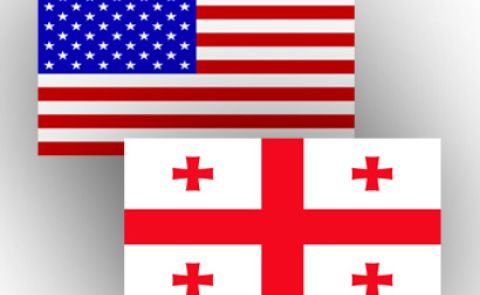
Kobakhidze Meets US Senator Daines to Discuss Bilateral Relations
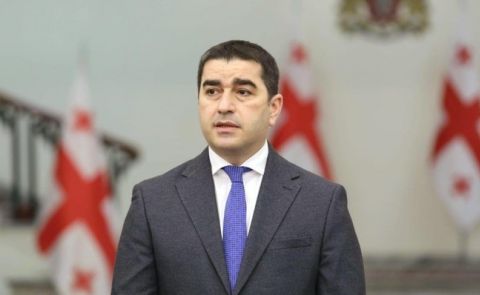
Georgian Speaker Condemns Embassy Travel Warnings as Economic Attack
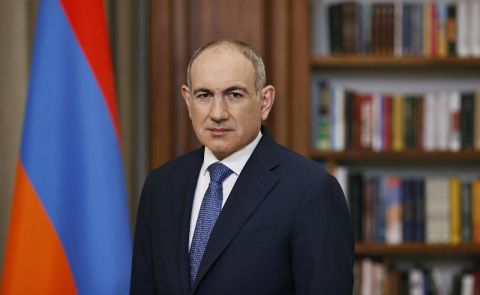
Political Crisis Deepens Between Armenian Government and Apostolic Church After Pashinyan’s Remarks
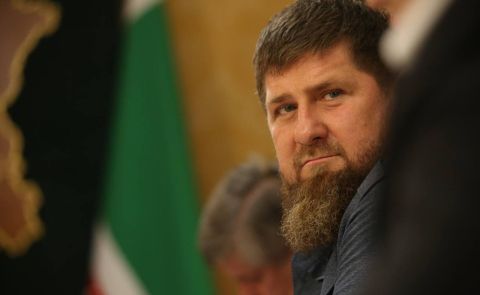
Ramzan Kadyrov Awards Title to Ingush Businessman
